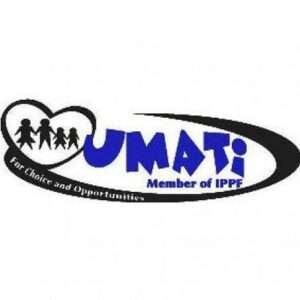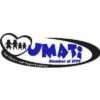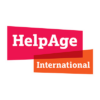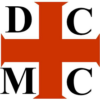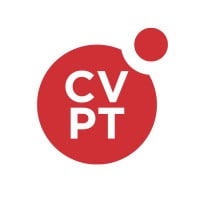Request For Proposal : Baseline Study at UMATI
Job Overview
REQUEST FOR PROPOSALS
PROJECT TITLE: STRENGTHENING YOUNG PEOPLE’S VOICE FOR ACCESS TO INTEGRATED COMPREHENSIVE SRH SERVICES IN MOROGORO AND IRINGA REGIONS, TANZANIA
BASELINE STUDY
1. INTRODUCTION
Chama cha Uzazi na Malezi Bora Tanzania (UMATI) is an autonomous, non-political national NGO providing Sexual and Reproductive Health and Rights (SRHR) information, education, and services in Tanzania. It has been in operation since 1959 and became a leading national organization providing quality youth-friendly SRH information and services, particularly to young people and women. In 1965 UMATI became a member association for International Planned Parenthood Federation (IPPF) where technical and core funds support was provided. By being a member of IPPF, UMATI is internationally connected through experience sharing with other IPPF member associations.
UMATI is envisioning to see a Tanzania where people are free to choose and exercise their Sexual and Reproductive Health and Rights without discrimination in gender, sex, and age. The visioning process of UMATI highlighted the need to integrate “without discrimination” as a recurring theme as well as an organizational value statement. “Freedom of choice” was agreed as a paramount inclusion at the end that UMATI would love to see by doing its core business.
UMATI’s Mission Statement is to champion SRHR and provide information and services targeting the young and underserved. In coming up with the Mission Statement, cognizance was put on the strategic position of UMATI as a leading SRHR service provider in Tanzania. This was eventually replaced by “champion” recognizing the need to lead not only by the provision of services but also by enabling other service providers including capacity building to local CSOs partners in the country to champion SRHR through their advocacy initiatives. UMATI strives for structural poverty reduction by improving the health of people in the country regardless of gender and political or religious beliefs, with priorities being given to the poorest communities and hard-to-reach populations.
2. ABOUT THE PROJECT
This project is a partnership between UMATI, and WGNNR AFRICA intended to increase young people’s ability to collectively advocate for the fulfillment of their SRHR and to live free from discrimination and violence. It intends to amplify the voice of youth-led and WROs to effectively advocate in a coordinated approach for young people’s access to integrated, quality, youth-friendly SRHR information and services. Specifically, the project will connect young people advocates and health workers to work together using evidence-based approaches to remove social, legal, and institutional barriers to Adolescent Girls and Young Women’s (AGYWs) access to integrated SRH services and information through joint advocacy campaigning, demand creation, and service delivery; and to create of safe spaces that facilitate mutual learning, sharing and supporting.
This project will be implemented in two Regions i
Morogoro
Iringa
3. PROJECT GOAL, OBJECTIVE, PURPOSE & INTERMEDIATE OUTCOMES
3.1 Goal
- To see all youth and women enjoy their bodily autonomy and SRHR with the complete ability to fulfill their full potential free from gender or age-related oppression or violence.
3.2 Objective:
- To build the capacity of Youth-led CSOs to generate knowledge to influence policies and practice on SRHR and safe abortion –
- To engage youth and women-led CSOs and networks at the regional and national level to undertake advocacy and promote effective measures to end gender inequalities and improve access to SRH and safe abortion.
- To strengthen local youth and women movements at the regional and national level in shifting social norms and raising community awareness regarding SRHR
- To expand access to integrated, quality, and right-based SRH and safe abortion services to poor, hard-to-reach, vulnerable/marginalized youth and women of reproductive age using innovative mobile outreach model and demand generation techniques.
- To build the capacity of government facilities to provide integrated, quality, and right-based SRH and safe abortion services to poor, hard-to-reach, vulnerable/marginalized youth and women using an innovative cluster model.
3.3 Intermediate Outcomes
- Improve the ability of Y&WLCs and networks to undertake advocacy and promote effective measures to end gender inequalities and improve SRHR and safe abortion services;
- Increase the capacity of Y&WLCs and networks to generate knowledge and evidence to influence policies and practice on SRHR and safe abortion services;
- Increase knowledge, skills, and attitude of how to provide gender-responsive, youth-friendly comprehensive SRH and safe abortion services among health service providers;
- Increase the ability of health systems and institutions to provide gender-responsive, youth-friendly comprehensive SRH.
4. APPROACH AND METHODOLOGY
- The baseline survey is to be carried out in Iringa and Morogoro Region by an independent consultant using a combination of qualitative and quantitative methods.
- The consultant is required to elaborate a detailed baseline design and methodology as part of their Work plan.
- The baseline design document should include a series of data collection instruments that will be used during the survey.
5. DATA ANALYSIS
- Prior to the start of data collection, the consultant shall develop and present a protocol for review and approval, a data analysis plan should that details includes how:
- Qualitative data such as key informant, stakeholder, and beneficiary interviews and/or focus group discussions will be transcribed and analyzed;
- Quantitative data will be analyzed and presented. Whenever possible, data will be disaggregated and analyzed by age and gender.
6. COVERAGE
- This baseline survey will be done in two regions of Morogoro and Iringa Regions in specific district councils which are Morogoro MC, Kilosa DC, Mvomero DC, Kilolo, and Iringa MC where the project will be implemented.
- The baseline data will also cover interventions by the district administration in the target districts, service providers, women groups, and traditional and religious leaders, in order to understand the SRH needs.
7. TERMS OF REFERENCE
- UMATI plans to carry out the baseline study of this project in order to effectively measure the progress in achieving the objective of this project, UMATI is aiming to hire a consultant to conduct the baseline assessment in the targeted intervention area in Iringa and Morogoro Region.
- The baseline will outline the prevailing situation with regard to the above project outcomes.
- This survey will gather information about the existing current national, regional, and district-level data on SRH.
- The survey will help to establish the baseline of key indicators and set a target/benchmark before the intervention so that the magnitude of change can be measured during the final evaluation to be carried out at the end of the project.
8. OBJECTIVES OF THE SURVEY
- The objective of the survey is to gather relevant baseline data for key project indicators to enable
Number of marginalized groups reached with SRH services; - Analysis of the community’s knowledge, and attitudes towards SRH services;
- Ascertaining the magnitude of response by different stakeholders concerning the availability and accessibility of SRH services; and
- Number of marginalized groups who are actively advocating for SRHR.
9. THE CONSULTANCY
- For this baseline survey, UMATI in collaboration with identified consultant will work closely to develop the survey tools and further sharpen the methodology before the implementation of the work.
10. SCOPE OF WORK
- The following is a general scope of work for the baseline survey;
- To prepare and present the survey protocol;
- To prepare and present the developed survey tools;
- To apply for an ethical clearance certificate with support from UMATI;
- To work with UMATI M&E staff to finalize an appropriate survey design;
- To carry out a desk review of existing data/information related to the project available at the region and district level;
- To translate the developed evaluation tools into the commonly spoken language in the local areas and translated them back into English;
- To coordinate logistics of collection of necessary data, supervision of the survey team (Data Collectors), quality control of data, cleaning, analysis, and interpretation of the findings;
- To develop the baseline report;
- Present the baseline report to UMATI and Stakeholders;
11 REQUIREMENTS
- UMATI is looking for a consultant to conduct a baseline with the following set of skills, knowledge, and experience:
- Track record in developing and conducting various types of evaluation including qualitative and quantitative data collection
- Previous experience working with women, girls, and communities using participatory approaches
- An advanced university degree in research, population studies, community health or a similar specialty is desirable;
- Solid knowledge of SRH;
- Experience in managing and coordinating evaluation/research exercises, delivering agreed outputs on time and on budget;
- Ability to respond to comments and questions in a timely, appropriate manner;
- Ability to write high-quality, clear, concise reports in English.
12 TIMELINES
The baseline study is scheduled to take place in the month on April 2023. Final report submitted by the first week of May 2023.
| Activity | April 1 | Ι May-23 | |||||
| W1- | W2- | W3- | W4- | W5- | W1- | W2 | |
| Main Activity: Conduct Baseline Survey | |||||||
| Sub Activity | |||||||
| Hiring a consultant | √ | ||||||
| Review of the tools | √ | ||||||
| Training of Data Collectors | √ | ||||||
| Fieldwork (Data Collection) | √ | √ | |||||
| Report Writing | √ | ||||||
| Submission of Baseline report | √ | ||||||
13 SUBMISSION
The applicant will submit an electronic Expression of Interest (EOI) stating his/her capability to conduct the baseline; including a budget showing details of all activities (e.g., # of days per person and description of the person’s job; the cost of tools, etc); proposed work plan with timelines; curriculum vitae and description of similar project assignments undertaken.
The expressions of interest must be submitted by 30th March 2023 to Executive Director at applications@umati.or.tz
UMATI
(0)- Total Jobs 42 Jobs
- Category Social Work
- Location Tanzania


